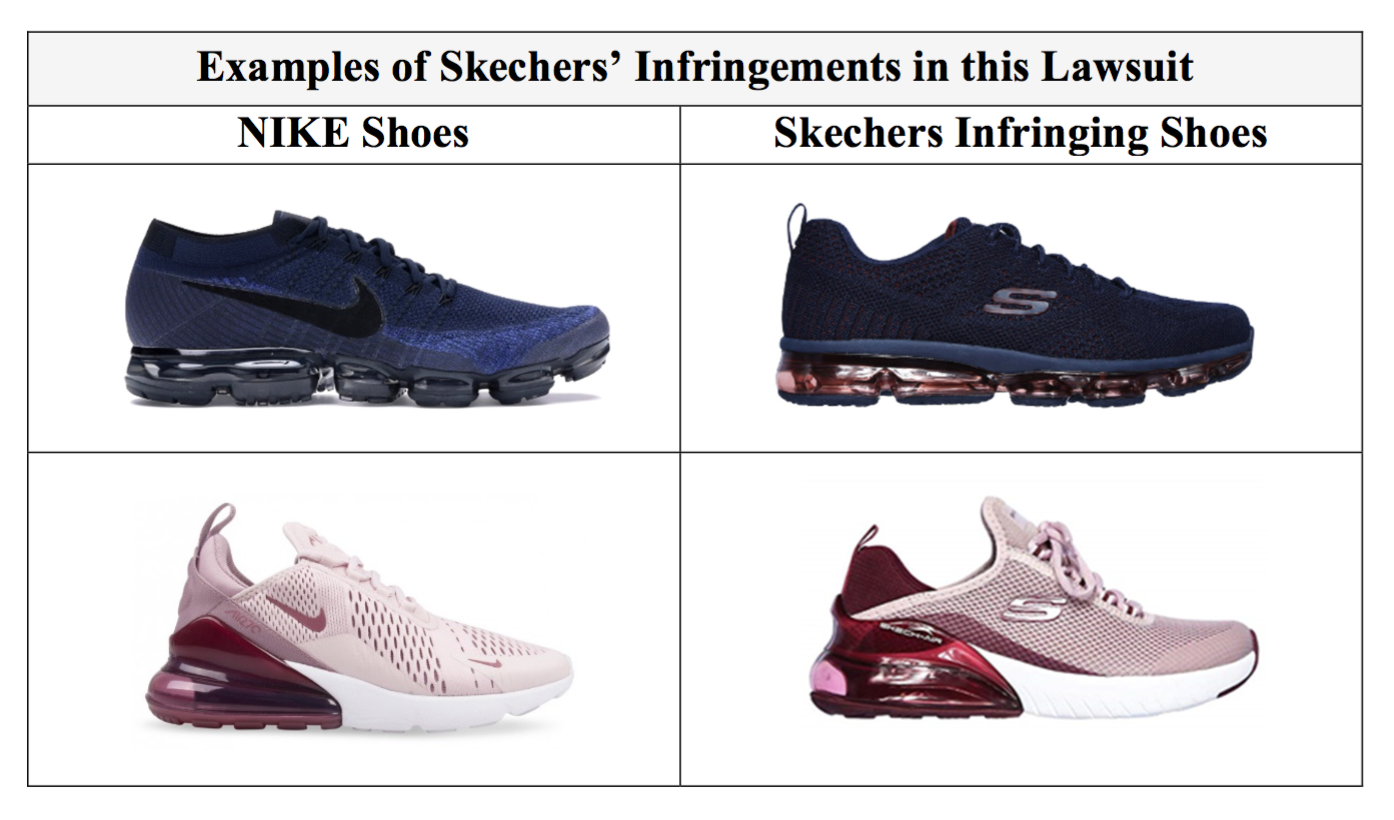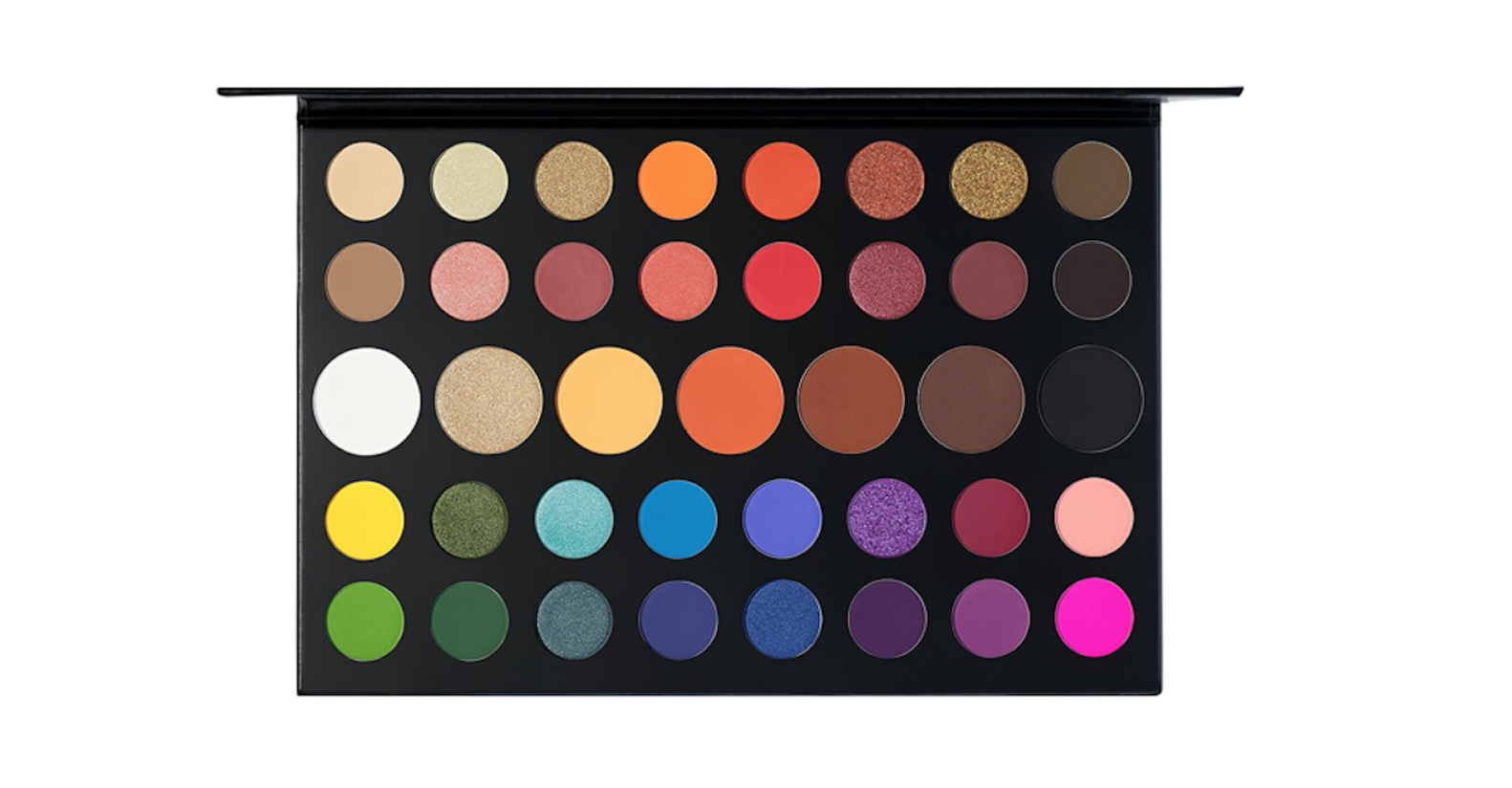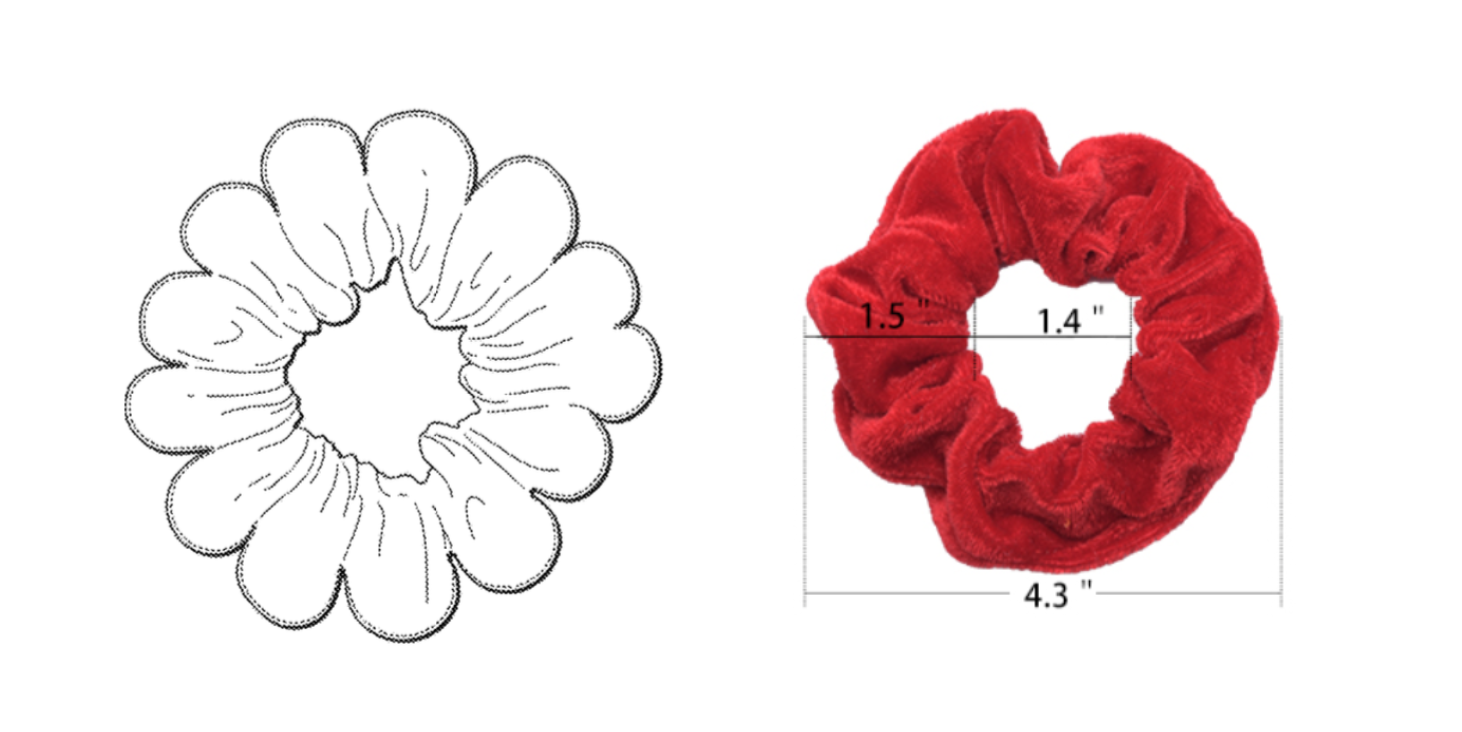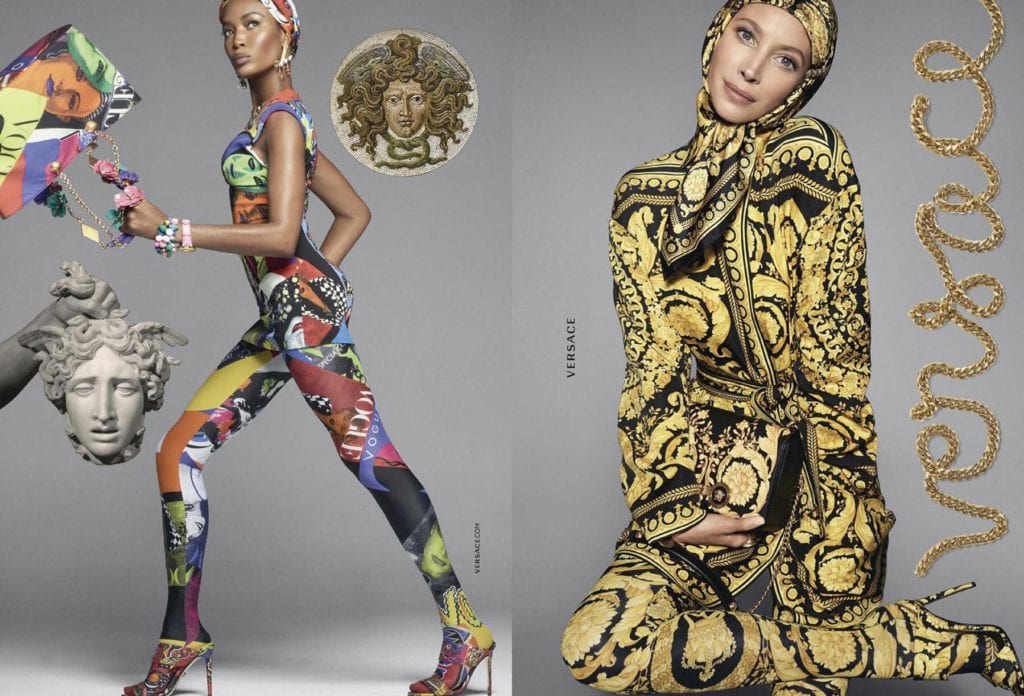Whether it was footwear companies filing suits against one another for alleged infringement and Allbirds calling foul on Amazon for allegedly mimicking the design of its staple wool trainer by way of one of its many private labels or musicians like Ariana Grande claiming that Forever 21 co-opted images of her, song lyrics, and sound recordings, and Versace taking Fashion Nova to court in a budding battle over “copyright infringing” garments, 2019 was filled with infringement-centric lawsuits and claims of copying.
From the notoriously protective adidas calling foul on others’ uses of stripes to YouTube mega-stars like James Charles taking issue with lookalike makeup palettes, here is a look at some of the biggest copycat claims and infringement lawsuits of 2019 …
1. Versace is Suing Fashion Nova for “Brazenly” Copying its Designs, Infringing its Trademarks
By way of a lawsuit filed in November, Versace is taking on high-speed copycat Fashion Nova for selling “deliberate copies and imitations of [its] most famous and recognizable designs, marks, symbols and other protected elements” – from its famed black and gold Barocco print to the “Jungle Print” dress that Jennifer Lopez made famous in 2000 – in furtherance of an attempt to “exploit the popularity and renown of Versace’s signature designs, and to trade on [its] valuable goodwill and business reputation in order to drive profits and sales to line Fashion Nova’s pockets.”
And speaking of fashion Nova, there’s a chance that celebs like Lopez and rapper Lil’ Kim, have a case against it, as well, for potentially misappropriating their likenesses in connection with a collection of very-familiar-looking costumes.
2. Supreme is Being Sued for Allegedly Hijacking Another Brand’s Camo Print
The world’s buzziest streetwear brand is being sued for allegedly jacking another company’s camouflage print for a range of its ultra-hot-selling wares. According to the complaint that ASAT Outdoors LLC filed in a New York federal court in November, Supreme’s corporate entity Chapter 4 Corp. is on the hook for copyright infringement for its “unauthorized reproduction and public display” of a copyright-protected camo design that is “owned and registered by” Stevensville, Montana-based ASAT.
3. Skechers’ Entire Model is Based on “Copying its Competitors’ Designs,” Per New Nike Lawsuit
In the first of a couple of lawsuits that Nike filed against Skechers towards to end of 2019, the Beaverton, Oregon-based sportswear giant claims that “instead of innovating its own designs and technologies,” Skechers maintains a “business strategy that includes copying its competitors’ designs to gain market share,” as driven by its CEO, Robert Greenberg, who simply “gives orders to knock-off competitors’ [successful] products.”
Nike followed up with a second suit at the end of October (less than a month after it filed the suit above), asserting that Skechers has “made, used, offered for sale, sold, and/or imported into the U.S.” shoes that infringe a number of its patents. Generally speaking, Nike went on to take issue with Skechers model as a whole, arguing that “intellectual property rights are fundamental rights, [and] if companies cannot defend their innovation—and companies like Skechers are permitted to build multi-billion dollar businesses on the backs of creators and innovators by copying designs and technologies year-after year.”
 image via complaint
image via complaint
4. After Receiving Infringement Letters Over 4-Stripe Sneaker, Skechers is Suing adidas
A behind-the-scenes call out (and threat of litigation) was brought to light when Skechers filed suit against Nike rival adidas in February. Less than a year after adidas and Skechers settled a trademark infringement suit over a Stan Smith-looking Skechers sneaker, Skechers filed suit, asking a federal court in Los Angeles to declare that despite adidas’ claims of infringement, it is not running afoul of the German sportswear giant’s 3-stripe trademark by way of its 4-stripe Goldie-Peaks shoe.
The case ended up settling out of court less than a month after it was filed.
5. Allbirds Has Built a $1.4 Billion Brand Out of Wool Trainers, Now Here Come the Copycats
On the heels of filing a since-settled lawsuit against Steve Madden in late 2017, claiming that the trendy footwear giant ran afoul of trademark law by copying its wool trainer, Allbirds is suing again. This time the buzzy brand took on Austrian footwear company Giesswein Walkwaren for manufacturing and selling sneakers that are “identical in all material respects” to Allbirds’s Wool Runners. Meanwhile, outside of court the brand is calling out Amazon. Although, it is not clear that it has a leg to stand on, legally, when it comes to Amazon’s alleged copycat shoes.
6. Virgil Abloh’s Off-White is Being Sued for Allegedly Hijacking the Name of Another Company Named OffWhite
Instead of being called out for copying a single item, Off-White was sued this year for allegedly hijacking the name of its entire brand from another company that says it has been using the OffWhite name since the 1990s. According to a complaint filed in New York federal court in July, OffWhite Productions LLC claims that Virgil Abloh’s red-hot brand is on the hook for trademark infringement, as its name is a bit too close to the New York-based company’s federally registered trademark, which covers “marketing, product design and related services,” while its offering also extend to consumer goods, as well.
In its formal response to the case, counsel for Off-White asked the court to toss out the matter in its entirety, arguing, among other things: “No one is likely to confuse [Off-White’s wildly popular] jackets, sweatshirts, and other streetwear apparel, or its retail stores with [OffWhite Productions’] business-to-business marketing consulting services.”
7. James Charles Calls Foul on Wet n Wild’s Dupe, Here’s the Legality of the Situation
In September mega-influencer James Charles (a 20-year old with 16.2 million followers on YouTube) called out Wet n Wild for allegedly copying the eyeshadow palette he created with beauty company Morphe by way of a then-soon-to-launch palette of its own. The 40-year old affordable beauty brand responded to James’ complaints by pointing to a common beauty industry practice known as dupes — i.e., the production/sale of cheaper, comparable alternatives to more expensive makeup.
In the wake of the call out, an undeterred Wet n Wild brought its alleged copycat product to market, and Morphe was issued the design patent it filed for in 2017 for the “ornamental design of a cosmetic palette.” (It has not since taken an public-facing action against Wet n Wild.)
 image: Morphe
image: Morphe
8. Adidas is Taking on J. Crew in New Fight Over Stripes
Adidas came for J. Crew with a new trademark challenge this year. The German sportswear giant – which is well-known for its aggressive and enduring fight over stripes – initiated a bid to shut down one of J. Crew’s recently-filed trademark applications, one in which the struggling retailer is seeking federal protections for a striped design for use on apparel ranging from tops and shorts to bowties and pajamas, as well as handbags, luggage, business card cases, and beach bags.
9. Brooke Shields Slaps Charlotte Tilbury, Sephora, Nordstrom and Co. with Lawsuit Over “Brooke S” Eyebrow Pencil
Virgil Abloh is not the only one facing litigation over a name this year, Charlotte Tilbury is, too – but not over the name of her brand, over the name of a $30 eyebrow pencil. The beauty brand of celebrity-favored makeup artist Charlotte Tilbury landed on the wrong end of new lawsuit filed by Brooke Shields, who is taking issue with Tilbury’s “Brooke S” shade of its Brow Lift pencil, which the actress says is a clear-cut attempt by the brand to “capitalize on [her] iconic eyebrows,” and as a result is serving to “interfere with Shields’ ability to market a cosmetics line” of her own.
10. Boohoo, Nasty Gal and Pretty Little Thing at the Center of “Exceptional” Dr. Martens Copying Case
A settlement agreement has not been enough to keep at least one of Boohoo Group, PLC’s brands from shamelessly copying an array of Dr. Martens designs, the cult boot brand’s parent company claims in a new lawsuit this summer. Despite entering into a confidential settlement agreement with Pretty Little Thing in June 2017 in which the British fast fashion brand agreed to cease its infringement of Dr. Martens’ legally-protected footwear designs (in order to avoid litigation), and regardless of Boohoo and Nasty Gal being put on notice of their alleged infringement of Dr. Martens shoes in 2017 by the brand, AirWair International argues that all three fast fashion companies have “willfully continued [such] infringement to this day” by ripping off a number of different Dr. Martens designs.
11. Scrunchies Are at the Center of a New Design Patent Lawsuit
In a timely suit, given the resurgence of the scrunchie, at least one lawsuit in 2019 made the 1980s accessory is focal point. In a declaratory judgment action that has since settled out of court, a Chinese Amazon seller that goes by the name Seven Style asked a California federal court to declare that it is not running afoul of the law by selling hair scrunchies. Seven Style asserted that a Michigan-based company, which maintains patent rights in a “distinct petal-shaped” scrunchie design, threatened to file suit based on the assertion that the two companies’ velvet hair scrunchies are a bit too similar for comfort.
 image via complaint
image via complaint
12. Marc Jacobs is Being Sued by Nirvana for Copying Logo in Recently Re-Released Grunge Collection
Technically filed in 2018, the case that Nirvana LLC – the legal entity formed in September 1997 by Dave Grohl, Krist Novoselic, and the Courtney Love-controlled Cobain Estate – filed against Marc Jacobs heated up quite a bit in 2019, making it worthy of attention. After the group’s corporate entity named Marc Jacobs in a sweeping infringement suit for allegedly copying Nirvana’s famed “Smiley Face” logo in 1991, the New York-based brand fired back, arguing that not only did it not infringe Nirvana’s rights by adopting a lookalike design (relying on the fair use doctrine, among other defenses), but the group should be barred from filing suit because Courtney Love allegedly did not take issue with its use of the design when she first learned about it, thereby, giving rise to a defense (per Marc Jacobs) of acquiescence.
13. Ariana Grande Names Ailing Forever 21 in $10 Million Trademark, Copyright Lawsuit
Ariana Grande is suing Forever 21 for $10 million. According to the complaint filed by counsel for Grande in a federal court in California in September, after a potential deal between the pop star and the fast fashion brand – which is reportedly on-the-brink of bankruptcy – fell through because of Forever 21’s “unwillingness to pay the fair market value for a celebrity of Ms. Grande’s stature,” the ailing fast fashion retailer enacted a backup plan: it “stole her name, likeness, and other intellectual property to promote their brands for free.”
Forever 21’s use of images of Grande – and her likeness – in its Instagram posts is particularly egregious, the complaint asserts, as Grande is “highly sought after by companies hoping to secure her endorsement of their products, and those companies are willing pay enormous sums of money to engage [her] to help promote their brands.” As a result, “Even a single social media post by Ms. Grande can garner fees of several hundred thousand dollars, and her longer-term endorsement arrangements command fees in the millions of dollars.”
While Forever 21 filed for bankruptcy less than a month after Grande filed suit, thereby, putting a halt to the case, the parties’ fight is far from over. With the automatic stay in place, the matter now moves to bankruptcy court, making Grande “an ordinary creditor of Forever 21,” according to Edward Morrison, a bankruptcy law expert and professor at Columbia Law School.











